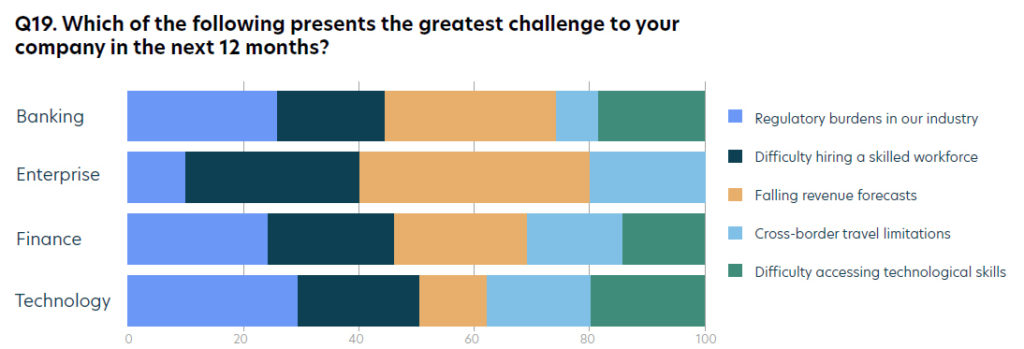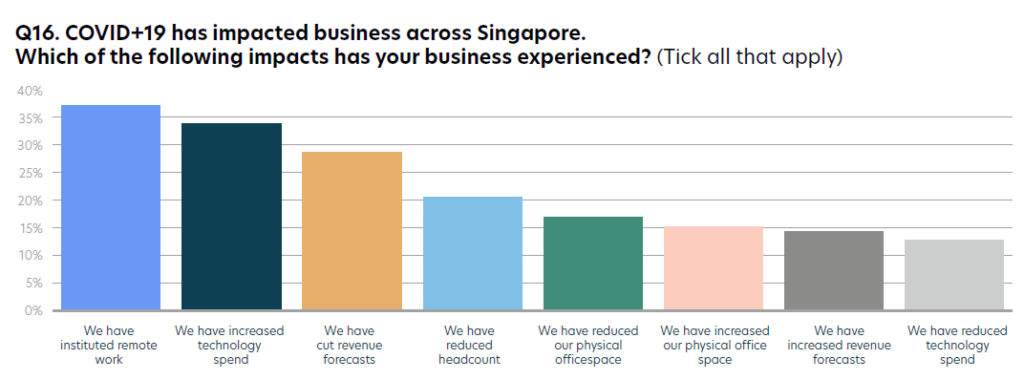The impact of COVID-19 has set off profound shifts within businesses in Singapore and the local labour market.
How employers are responding to COVID-19

Research Indeed.com revealed during the pandemic around 7% of people working in finance, technology and enterprise were made jobless in the past 12 months, and mobility between roles remains high, with 11% changing roles in the same period.
More than one in four (26%) said their wages have fallen in the past year. The segment most likely to have experienced wage falls were those on incomes between $27 000 and $45 000, where more than 35% experienced lower wages.
During the pandemic, 29% of employers in the finance, technology and enterprise sectors cut revenue forecasts while only 14% increased them. In the enterprise space 60% of companies started working remotely.
Looking skills shortage

Among white-collar workers in Singapore, 36% agree that the country is a global leader in technology.
Employers are increasingly seeking to acquire workers with technological skills to power their accelerated business digitisation efforts. Among employers surveyed 52% have delivered training in the use of technological tools like videoconferencing and document management as remote work has become the norm.
Employers also recognise Singapore as a leader in developing population-wide tech skills. When asked to choose which area of technology the country is most advanced in, the provision of digital identities for citizens (28%) and the availability of government data to citizens and corporations (26%) are the most common responses.
A majority (57%) of employers agree that government-led digital transformation efforts help their industry digitise by building digital culture and infrastructure. However, a significant minority (41%) say that government digitisation programs hamper their own efforts by competing for hard-to-source talent.
Indeed APAC’s Sabrina Zolkifi said the research showed the agility and acceptance of technology among Singapore businesses and the local workforce.
“What we are seeing from this research is that companies are navigating an incredibly disruptive year through the help of technology and empowering their workforce with the necessary skills.”
“The data shows how both employers and workers are embracing greater flexibility in work methods and leaning into the tech skills challenge, with emphasis on mental health and remote work support.”




